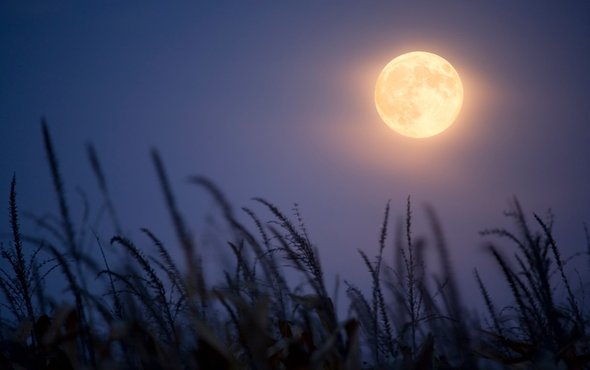(单词翻译:单击)
听力文本
This is Scientific American — 60-Second Science. I'm Jason G. Goldman.
Homo sapiens has an outsized influence on the behavior of other animals. We have long hunted them. More recently, we destroy habitats to build housing and coffee shops, and we build roads to drive from our houses to those coffee shops. But some of our influences are far more subtle.
"My collaborators and I had noticed a striking pattern in some of our own data from far-flung places like Tanzania, Canada, Nepal...where animals we were studying seemed to be more active at night when they were around people."
University of California, Berkeley, wildlife ecologist Kaitlyn Gaynor.
To see if animals really were changing their activity schedules, Gaynor and her team rounded up 141 studies of 62 kinds of mammals from across six continents. And they found that mammals near people across the globe have settled on a new strategy for survival: they take to the night, when most of us are comfortably tucked into our beds counting sheep. The finding is in the journal Science.
For example, an animal that would ordinarily prefer to spend half of its active time during the daytime and half at night shifts to two thirds of its active time under darkness.

And our particular human behaviors do not seem to matter:
"Something that surprised me in the study was just how consistent the shift towards nocturnality was across types of human disturbance. We expected to see animals being a little bit more discerning, and perhaps responding more strongly to activities like hunting, that actually do a pose a risk to the animal. But what we found is that whether it is infrastructure development, or hunting, or even just hiking through wilderness areas, all of these human activities elicit a response in wildlife, suggesting that they're playing it safe around us."
In a way, this reaction is a good thing. The night shift allows animals to more safely coexist with us in shared spaces. But what's not yet clear is any long-term physiological changes animals may go through from adjusting their daily schedules because many can't simply run away from us. Nor is it obvious what impacts these changes might have on broader ecological communities, and on the food web.
"Even if we think we're leaving no trace in the outdoors, our presence can have pretty lasting consequences."
Thanks for listening for Scientific American — 60-Second Science. I'm Jason G. Goldman.
参考译文
这里是科学美国人——60秒科学。我是杰森·古德曼。
人类对其他动物的行为有着超乎寻常的影响。我们长时间以来都在追捕动物。最近,我们破坏动物的栖息地来建造房屋和咖啡馆,并修建从房屋通往咖啡馆的公路。但是我们的一些影响则要微妙得多。
“我和我的合作者在我们的一些数据中发现了一种惊人的模式,这些数据来自坦桑尼亚、加拿大、尼泊尔等遥远的地方。我们发现,我们研究的动物在人类周围生存时,似乎在晚上更为活跃。”
加州大学伯克利分校的野生动物生态学家凯特琳·盖纳说到。
为了弄清动物是否真的改变了它们的作息时间表,盖纳和团队收集了来自六大洲62种哺乳动物的141项研究。他们发现,世界各地在人类周围生活的哺乳动物已经选定了一种新的生存战略:它们养成了在晚上活动的习惯,而那时我们大多数人已经舒服地钻进被窝睡觉了。这项研究结果发表在《科学》期刊上。
举例来说,一种通常喜欢将昼夜活动时间平分的动物,现在将活动时间的三分之二安排在夜间。
我们特定的人类行为似乎没有多大影响:
“这项研究中令我感到惊讶的是,在不同类型的人类干扰中,动物转变为夜间活动这一趋势的一致性非常高。我们本以为动物会变得更敏锐,也许会对捕猎这样的活动反应更强烈,因为那是会对其构成威胁的活动。但我们发现,无论是基础设施建设,还是捕猎,甚至是徒步穿越自然保护区,所有这些人类活动所引发的野生动物的反应,都表明它们在我们人类周围时一直在谨慎行事。”
从某种程度上说,这种反应是件好事。“上夜班”使动物可以更安全地在同一空间与我们共存。但是目前还不清楚的是,动物在调整作息时间时是否会经历长期的生理变化,因为许多动物不能简单地靠避开人类而获得安全。而这些变化可能对更广泛生态社区和食物网络产生的影响也不明朗。
“即使我们认为自己没有在户外留下痕迹,但我们的存在本身就会产生相当持久的后果。”
谢谢大家收听科学美国人——60秒科学。我是杰森·古德曼。
译文为可可英语翻译,未经授权请勿转载!
重点讲解
重点讲解:
1. round up 围捕;逮捕;
We've rounded up a selection of products.
我们已经精心挑选了一些产品。
2. settle on 选择;选定;
They could not settle on where top spend the holiday.
他们还决定不了到哪儿去度假。
3. take to 养成(做…)的习惯;开始定时(做…);
They had taken to wandering through the streets arm-in-arm.
他们养成了挽着胳膊逛街的习惯。
4. play it safe 谨慎行事;避免冒险;
Just play it safe, cover your ass, keep your head down.
要谨慎行事,保护好自己并保持低调。


